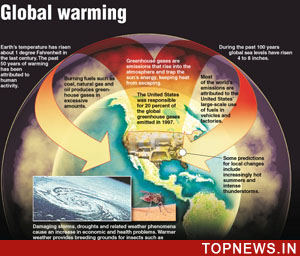Over the next two centuries, climate change is likely to impact everything from industrial agriculture to the shape of our coastlines. The changing climate will certainly cause huge changes around the world, and the challenge is to predict exactly what impact those changes will have.
In the world of marine science, this means grappling with a process called ocean acidification. As human activity pumps carbon dioxide into the atmosphere, some of the carbon dioxide gets absorbed into the sea, which raises its acidity.
Scientists have been concerned about this for more than a decade, says Hannes Baumann, an assistant professor of marine sciences who studies the phenomenon in his lab at UConn’s Avery Point campus. “The fundamental question,” he says, “is whether or not organisms can adapt to this threat.”
That question is important, because although ocean acidification is happening, it is a slow process. Levels of carbon dioxide in the atmosphere have increased more than 50 percent since the beginning of the Industrial Revolution. They are expected to undergo another four-fold increase, but over the course of the next 300 years.
“Three hundred years is only five or six generations for whales or long-lived sharks,” says Baumann, “or 300,000 generations of single-celled organisms.”
Recent work has thus focused on whether or not species can evolve along with the ocean, adapting over time to the increasing acidity.
Measuring evolutionary potential

